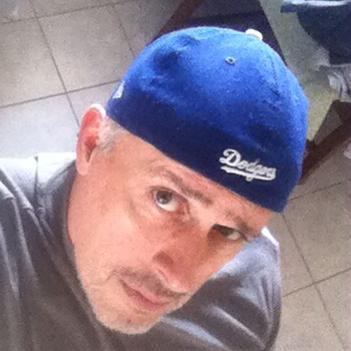In the downtown core the interns leave by the plus-fifteens, the glass and steel walkways fifteen feet above street level. The traffic below is unnavigable, full of profane bicycle couriers who live skinny off of methamphetamines and aspire mostly to ride right into settlements from bodily-injury claims settled prior to trial, and men and women delivering packages on sore feet and bad knees from stenciled vans that are part of their uniforms. The plus-fifteens always have the homeless, evenly spaced, each with a sign and box, stoic and reeking mendicants awaiting their alms from those least able to give them. All it takes is patience, forbearance, and the coffee that they pay for when only they must.
The “Indian” had been there the longest. He had long hair and often wore it in a single braid. His sign read only “Anything Will Help” and his day, his hourglass, was measured in the dropping of coins. No one spoke to him and he in turn held his silence. The days went by the same for all of them, the interns with their wool coats and empty pockets, and that particular alms-less man, he expressionless in denim. Where does he go at night? Where does he go on the weekends? Some wondered, but none asked.
The oldest of the interns, surnamed Prescott, wiry like a boy and very nearly red-haired, once speculated as to the Indian’s daily take. He calculated it to less than minimum wage on the hour, but tax-free because it was paid in cash, and therefore superior to what the interns were able to secure at the end of the day.
“We should be asking him for a little assistance,” Prescott said.
No one laughed.
Their supervisor, a man who maintained a certain good cheer at all times in all matters, told them that they were doing it wrong, that if they were to run the gauntlet of beggary that the warmth and elevation of the plus-fifteens drew they’d definitely be more broke than the bums at the end of the month. The trick is to “adopt” one beggar he told them, one alone, and make sure all the others knew it. Give that man a ten every payday he said, and that’s all you need to do. Conscience would be satisfied and—at least as importantly—order maintained. He told them to think of it as a religion, but one made of one decent and efficient tithe rather than a hundred small and wasteful donations. Everyone is better served by it.
The Indian was not the supervisor’s client in this regard and Prescott, alone among the interns, noted that at the end of almost every day his box held less in donations than any of the other beggars. He thought that this might be some sort of prejudice—that passers-by would note the man’s appearance and think (but not say) that he should just go back to the reservation—his reservation—where he would be taken care of. After all, by treaty wasn’t the reservation’s money his money? Well, no, it isn’t, but to be fair, no one understands the treaties, especially not on the plus-fifteens.
Prescott came to the conclusion that the man’s problem was not one of sponsorship, or treaty, but of marketing. His sign was bad. At one time “Anything Will Help” would have been singularly poignant and stood out amongst the other signs boasting of bad intentions (like using any money given to buy drugs and lap dances) or claims to military service of uncertain (and likely false) provenance.
Prescott said to the others, “I will get him a new sign and a new pitch, you’ll see.”
A woman named Sherry said quietly that she had once asked the Indian his name and he had only mumbled “God bless you.” She asked him again and he said nothing, just readjusted his cardboard alms-box slightly forward. “I thought I once heard someone say his name was ‘Rich’” she said out loud, “and I believed them. But they laughed at me. It was a joke you see, a “homeless man named ‘Rich’. Ha-ha. Only a bad pun. I can’t believe I fell for that.”
No one among the assembled heard her and she began to repeat herself but then stopped because no one was listening.
The next day at the close of business Prescott went into the plus-fifteen and sat directly beside the Indian. He set down a cardboard sign on which he had written in thick black felt marker:
“I HAD A BAD CHILDHOOD”
Prescott crossed his legs and spoke:
“My father and mother argued whenever they were together. My father was a trucker, He’d been in transport in the military and that is where he learned to drive professionally. My mother smoked cigarettes with her mom and her sister and complained about everything, but mostly about my father. She slept on boxed wine and Ativan. I think it’s fair to say that he felt nothing but contempt for her and that she tried to conjure reasons to feel the same for him, but he had only to open the fridge, or the medicine cabinet, and there was his justification.
One snowy day he took me to Wal-Mart to get something—I can’t even remember why we were going. In the parking lot another driver cut him off to get into a parking spot. My father did not abide bad drivers. In the same way that my mother and her family complained about each other he complained about all of the bad drivers he saw. He rolled down his window and cursed the other driver who cursed him back. My father got out. He was not a big man my father, barely five-foot-eight and never heavier than a buck-fifty. Although sparely built and trim in a military way. The other guy was big but soft-looking, and they began to fight there in the Wal-Mart parking lot, in the muddy slush of a snowy day. My dad swung himself off his feet, losing his footing on the ice, and fell onto his back. The other fellow fell on top of him and began pushing, rather than punching, blows at my father’s face. My father had his hands up in front of him, moving them to ward off the other man’s blows. He moved his hands like nothing so much as a man cleaning the steam off of a bathroom mirror so that he could see to shave. I sat in the passenger seat, wide-eyed, and said nothing. A woman got out of the passenger seat of the other vehicle and started yelling at the man, who rolled off my father into the snow. She stood between the two of them and each got up in turn and left. My father got back into our car with me, the other man walked into the Wal-Mart. Every time he’d stop and turn back to glare menacingly at us, the woman—his wife I suppose—would push him forward toward the building. Although I could not make out her words, I can remember her tone, a shrill and paralyzing sound like only a woman can make. I’d heard that tone from my mother before, and from my aunt and my grandmother too.
My dad closed his door and told me that we’d go to another Wal-Mart; there was one fifteen or twenty minutes away. He was a professional driver, but the snow came down and people drove like idiots and it took him thirty.
When we got home my mother asked what had taken us so long and my father said simply that people drove like idiots in the snow. I said nothing. My father had not a mark upon him, nothing to show what had happened other than his dirty clothes, but the weather could account for that and my mother didn’t pursue it. He did his own laundry anyway.
My mother was my father’s second wife. They divorced within the year. My mother never remarried. We lived thinly. She died of an aneurysm while sitting on the toilet when I was eighteen. I am sure it was brought on by cigarettes, boxed wine, Ativan, and complaining. I lived with my grandmother while I was finishing school. She marveled every day about how she’d outlived my mother. I wonder too—she smokes even more. I never found any Ativan though. Maybe that’s it. My father is now married for the fourth time, this time to a Filipina woman he met on-line. He is retired. They live in Mexico where his money goes farther, and the drivers are apparently terrible. He phones me twice a month, on the fifteenth and thirtieth without fail, and always asks me to come on down and see him. I never thought about actually going there before but now I think I will now, once I get some money together. I have been a student for a while. I have been living thin. You know how it is.”
The other interns listened in silence. None laughed, even though the whole thing might be seen to have been a bit of a joke. Prescott stood up to leave and the Indian pushed forward his box. Saying nothing, Sherry opened her purse, took out her wallet, and put in a ten.
“You’re my guy” she said to Prescott, “These others have to find their own sponsor.”
Prescott left the box with the Indian. In the coming days the Indian’s box seemed fuller—the sign brought him coins for sure, and paper money of all sorts too. Specie and note abounded in a pirate’s share. A triumph of the marketer’s art.
When he finished his internship, Prescott decided against pursuing a career in finance. He skipped Mexico too, opting instead to go back to school to learn to code. The supervisor heard this and thought it fine, that Prescott was smart enough to do anything he wanted to, he just wasn’t a fit in finance. He’d heard of Prescott’s “campaign” on behalf of the Indian and noted that it is true that everyone has a story, but it is also a truth—a truth hard and spare—that some stories are worth more than others.
In the spring, with the weather getting better, the homeless left the plus-fifteens for the street and the parks, moving slowly through the bicycle couriers weaving with bad intentions and the delivery vans with their sharp exhaust into the parks and the shade of the trees down by the river, their signs lost, their sponsors forgotten, and there they sleep and steal and quarrel and live only as thinly as they have to. Even when they are high, and even when the sponsor’s alms are reduced to nothing, they never speak a word to any outside of their own.
#
author bio:
 Puschart and Best of the Net nominee Steve Passey is from Southern Alberta. He is the author of the collections Forty-Five Minutes of Unstoppable Rock (Tortoise Books) and The Coachella Madrigals (Luminous Press) and many other individual things. He is also part of the editorial collective at The Black Dog Review.
Puschart and Best of the Net nominee Steve Passey is from Southern Alberta. He is the author of the collections Forty-Five Minutes of Unstoppable Rock (Tortoise Books) and The Coachella Madrigals (Luminous Press) and many other individual things. He is also part of the editorial collective at The Black Dog Review.
